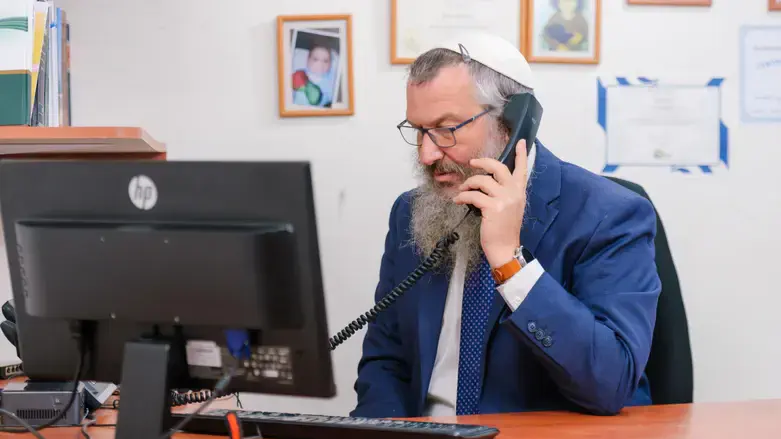
Yoav was a courageous soldier, a good friend to all, and the only son of Irit and Maor. Like many others, Yoav was called up to his reserve unit on October 7th and fought valiantly to defend Israel from the vicious and horrific Hamas attack.
In January, while still fighting, his armored carrier was hit by an RPG shot by terrorists. Yoav and another soldier were killed instantly, and his body was taken to the Shura Camp to be prepared for burial. It was there that Irit and Maor came to identify his body, and there they first heard about the possibility of extracting his sperm to potentially bring a child into the world. They did not need much time to deliberate; Yoav was their only son, and without children, their family name would be lost forever. They agreed, and an operation was performed to remove Yoav’s testicle and extract the sperm for cryopreservation.
This story has been repeated over 100 times: young men killed in battle, with their parents agreeing to extract and store their sperm in the hope of eventually finding someone to carry their grandchildren. However, the reality is much more complicated. Current law permits parents to request sperm collection but does not clearly stipulate who can use the sperm and who is eligible to carry the pregnancy. Parents who froze their son’s sperm in previous wars have spent large sums of money on legal representation to receive permission to use the sperm, but they have not always been granted such permission.
In addition, there are halachic considerations, especially the question of defiling and maiming a corpse. This is prohibited either because it delays burial and prevents the burial of the complete body or due to the obligation to “love your friend as you love yourself,” meaning one cannot do to others what they would not want done to themselves. As most people would not want such surgery performed on them, we are prevented from doing so to others, even after their death. However, in this case, there is a clear aim to the surgery: the hope that it will result in the birth of a child. Can we claim that the individual would be willing to undergo such surgery in order to have a child? Can we assume their preference for having a posthumous child?
Some halachic authorities, such as the late Rabbi Zalman Nechemiah Goldberg, suggested that if someone was married, we could presume they wanted to have children. Can we then conclude that someone who was single did not want to have children; otherwise, they would have gotten married? What about a young man who was not of marriageable age? Can we claim that a man who was engaged to be married and was tragically killed before his wedding probably wanted to have children?
Research carried out by the Research Department of the PUAH Institute, a leading organization in fertility and halacha, suggests that it is not simple to assume that all men, or even all married men, would want to have a child after they die. A survey among religious and secular, married and single men did not conclusively prove that men are interested in having children posthumously.
Founded over 30 years ago, PUAH counsels couples and individuals regarding fertility, genetics, contraception, intimacy, and a range of health issues and their halachic ramifications. PUAH’s male and female counselors handle hundreds of calls daily from all over the world, explaining medical treatments, referring to top medical experts, and offering support through challenges and treatments. PUAH also supervises fertility procedures to ensure there are no human errors and to prevent potentially devastating mistakes.
PUAH is uniquely positioned to navigate the complexities of the issue of taking sperm from deceased soldiers. One of PUAH’s rabbinic counselors, Rabbi Lior Segev, has spent numerous hours in the Knesset, advising members on the practical and halachic implications of each solution.
Another halachic question concerns the status of a child born after the father has died. Rabbi Shlomo Zalman Auerbach, one of the leading halachic authorities of the previous generation, wrote that the father is the halachic father of the child. However, his contemporary Rabbi Shaul Yisraeli disagreed, claiming that a dead person cannot fulfill the obligation to procreate and cannot be considered the father. One of the current leading halachic authorities, Rabbi Yaakov Ariel, pointed out that their discussion related to sperm collected during one’s lifetime, but since, in this case, the sperm is collected posthumously, everyone would agree that the man is not the halachic father.
The late Rabbi Nachum Rabinowitz, the Rosh Yeshiva of Maaleh Adumim, wrote that while it is not a clear halachic prohibition, we should not create children who are fatherless, as they are born disadvantaged. Some secular ethicists, such as Prof. Ruth Landau of the Hebrew University, agree, arguing that we cannot compare natural conception to artificially assisted reproduction and that the child often fulfills the parents’ desire to fill the void left by the death of their son, rather than the deceased’s desire.
The current war has raised many questions, and the removal and use of sperm from deceased soldiers is just one of them. In the absence of clear instruction, whether halachic or legal, we must create our own laws and practices. PUAH is an integral part of this process, combining ancient halachic perspectives with modern medical practice within an ethical and empathetic framework, in order to find halachic, ethical and empathetic solutions for the most complex and difficult real-life questions.
PUAH is available to guide, assist and support individuals and couples facing challenges in fertility, genetics and intimacy. Please call PUAH in Israel 02-6515050, USA 718-3360603.
*Rabbi Gideon Weitzman. Head of the English Speaking Section of PUAH
Visit our website www.puah.org.il, donations to PUAH are tax deductible.